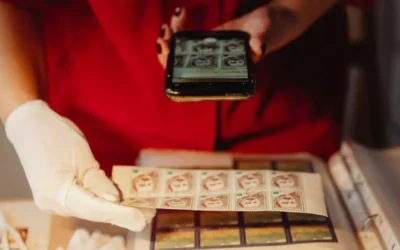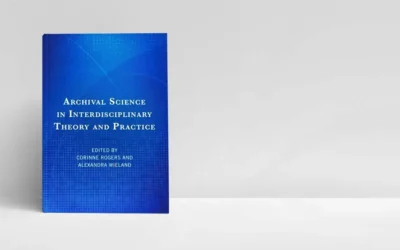Archival Relationship-Building
Margot Note
In organizational dynamics, archivists play a crucial role that extends beyond self-advocacy.
They are the custodians of historical information, holding a wealth of insights that can drive innovation and enrich an organization’s capabilities. Relationship-building for archivists emphasizes fostering collaborative partnerships, overcoming challenges, and shaping the organization’s present and future.
Fostering Partnerships
Archivists possess a unique treasure trove of historical information that can contribute to various departments’ initiatives. By building relationships across departments, archivists unlock opportunities to share their insights, inspiring new perspectives and innovative solutions. Collaboration catalyzes organizational growth as archivists become integral contributors to projects, offering a historical lens that informs and enriches decision-making processes.
One of the significant challenges archivists face is the perennial issue of limited funding. Relationship-building becomes a strategic tool to ensure the sustainability of archival programs. Through cultivating stakeholder relationships, archivists articulate the immense value of their endeavors. These relationships become advocates for the archival cause, helping secure the necessary backing to allocate resources and ensure the program’s longevity.
In addition to their pivotal role in fostering collaboration and providing historical insights, archivists also grapple with the evolving landscape of technology. As organizations digitize their records, archivists must navigate the complexities of preserving and accessing digital archives. The shift to digital presents opportunities and challenges, requiring archivists to stay abreast of technological advancements and implement innovative strategies for digital preservation. In this environment, archivists are crucial in bridging the gap between traditional archival practices and the demands of a rapidly advancing digital era.
Archivists serve as guardians of cultural heritage, preserving documents and the diversity of voices and perspectives embedded in historical records. As stewards of the past, they confront the responsibility of ensuring inclusivity in archival collections. By seeking and archiving materials representing a spectrum of experiences, archivists contribute to a more comprehensive and equitable historical narrative. In doing so, they underscore the importance of diversity within archival practices, fostering a richer understanding of our shared heritage.
Enhancing Visibility
Relationship-building emerges as a key strategy for archivists seeking support within the complex web of organizational dynamics. Archivists highlight their value by engaging colleagues across departments and contributing to a more informed organizational landscape. The visibility gained through these relationships translates into increased support for archival initiatives. The collaborative effort ensures that archivists are not isolated custodians of the past but active contributors shaping the organization’s present and future.
The immediate benefits of relationship-building for archivists are undeniable. It goes beyond securing resources; it is about creating a network of advocates who understand and appreciate the importance of historical information. As archivists weave these connections, they become integral players in the organizational narrative. The power of archival relationship-building lies in addressing current challenges and shaping the organization’s future through a profound understanding of its past.
The impact of effective relationship-building extends beyond the immediate benefits for archivists; it moves through the entire organizational fabric. As archivists foster connections and become integral players in the organizational narrative, the ripple effect is felt in enhanced collaboration and a more cohesive work environment. The shared understanding of historical information addresses current challenges and becomes a foundation for informed decision-making. This collaborative spirit, driven by archival relationship-building, creates a culture that values knowledge preservation and seeks insights from the past to shape a more resilient and forward-thinking organizational future. In essence, the investment in relationships by archivists becomes a catalyst for positive organizational transformation, where the past becomes an invaluable resource guiding the present and future trajectory.
Relationship-building is the key that unlocks the full potential of archival insights. Collaborative partnerships, advocacy for sustainability, enhanced visibility, and garnering support are the fruits of cultivating strong relationships across departments. The immediate benefits affect the organization, creating a more informed and interconnected landscape. The true power of archival relationship-building lies in its capacity to shape the present and future of an organization by understanding and appreciating its past. Through their relationships, archivists become architects of organizational transformation, ensuring that the echoes of history resonate in every initiative.
Margot Note
To learn more, please join us for a free webinar, Archival Relationship-Building Wednesday, April 10, 2024 at 11 a.m. Pacific, 2 p.m. Eastern. (Can’t make it? Register anyway and we will send you a link to the recording and slides afterwards). Register now or call 604-278-6717.
Never miss another post. Subscribe today!
Similar Posts
Ensuring Long-Term Access to Digital Archives
Long-term preservation is essential to ensure digital archives remain accessible and usable.
5 Best Practices for Personal Digital Archiving
Archivists have developed best practices for organizing and maintaining personal digital archives, safeguarding digital legacies for future generations.
Interview with the Editors: Wieland and Rogers on Interdisciplinary Archival Science
Alexandra Wieland and Corinne Rogers co-edited Archival Science in Interdisciplinary Theory and Practice. My interview with them is below.
The Importance of Personal Digital Archiving (Plus Steps to Get Started)
Archivists often help individuals manage and preserve digital files of personal significance.




Leave a Comment
Comments are reviewed and must adhere to our comments policy.
0 Comments